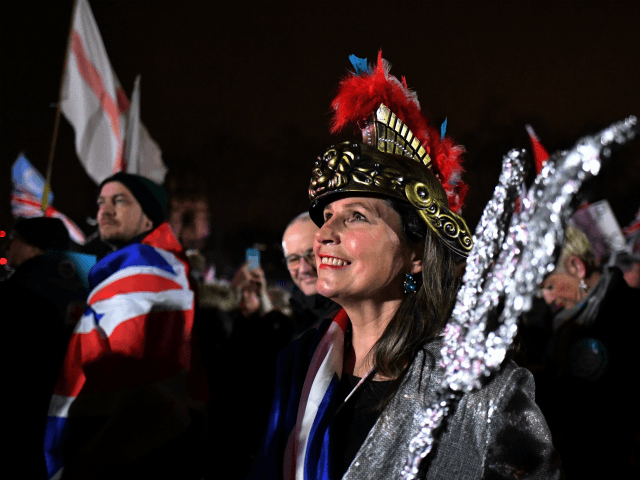The UK’s trade negotiator David Frost has fired a warning shot at Brussels, saying that sovereignty over Britain’s fishing waters, laws, and courts is “not up for discussion”.
Publishing the agenda for the next round of talks with his EU counterpart set to take place on Monday, Mr Frost said: “For the first time since March we will meet face to face, in Brussels. We look forward to welcoming the EU team to London the week after.
“These meetings will be smaller and focused on seeing whether we can begin to make genuine and rapid progress towards an agreement. We will go to Brussels in good faith to engage with the EU’s concerns.”
Challenging the EU to drop its “unrealistic positions” on fishing demands and oversight of the future deal, the British negotiator continued: “This needs to be a real negotiation, and some of the EU’s unrealistic positions will have to change if we are to move forward. We have noted carefully what the EU has said in recent days on this subject and look forward to discussing it.
“UK sovereignty, over our laws, our courts, or our fishing waters, is of course not up for discussion. Equally, we do not seek anything which would undermine the integrity of the EU’s single market.”
He also hit back at reports that Boris Johnson’s government was ready to sign a trade deal with Brussels that would result in the UK accepting penalising tariffs if the country deviated from the EU’s rules.
He said: “Finally, I want to be clear that the government will not agree to ideas like the one currently circulating giving the EU a new right to retaliate with tariffs if we chose to make laws suiting our interests.
“We could not leave ourselves open to such unforeseeable economic risk.”
Tories Now Party of Working Class, Brexit Helped Win over Traditional Labour Voters: Report https://t.co/FvTxmANost
— Breitbart London (@BreitbartLondon) June 25, 2020
This is not the first time Frost talked tough with the EU over the issue of the UK regaining her sovereignty. Last month, he criticised Brussels for offering a “low-quality” deal that no “democratic country could sign”. In response, his opposite Michel Barnier said that he did not like Britain’s “tone”, rejecting calls for a better trade deal.
The United Kingdom officially left the European Union on January 31st, 2020. But the country remains in a transition period until December 31st, 2020, and is bound by EU rules. During that time, Brussels and London are working on negotiating a future trading relationship. Boris Johnson has bound in law the exit date, so if a deal is not agreed by the deadline, the UK will exit Brussels’ institutions and deal with the bloc on World Trade Organization (WTO) terms.
British businesses are reportedly preparing for a WTO — or ‘No Deal’ — exit.
The UK has maintained that it will regain full sovereignty over her fishing waters, her courts, laws, and trade. However, the EU has said that it will not agree on a deal unless long-term fishing is approved, the UK adheres to the EU’s regulations, and the European Court of Justice adjudicates any future agreement.
President of the European Parliament David Sassoli complained to The Guardian that Prime Minister Johnson seems disinterested in what Brussels terms ‘compromising’ on Britain’s red lines.
“Together, we [EU leaders] are very worried because we don’t see great enthusiasm from the British authorities and we don’t see a strong will to get to an agreement that satisfies all parties,” he told the newspaper in an article published on Thursday.
Revealing the concern Eurocrats are feeling over not agreeing on a deal with Brexit Britain, Mr Sassoli added that “at the moment we are frankly a little bit worried”.
Brexit Leader Farage Backs Trump 2020 to ‘Face up to the Radical Left’ https://t.co/0UQylJaIiD
— Breitbart London (@BreitbartLondon) June 24, 2020
Mr Barnier said ahead of Monday’s talks that the EU will never surrender on demands that the UK adheres to EU rules, in order to stop Brexit Britain becoming a trading competitor in the region.
On the issue of tariffs, Barnier admitted: “Even if you were to maintain tariffs on some goods […] the EU will still demand strong ‘level playing field’ guarantees.”
Barnier also complained about the British politicians insisting that any future trade deal must fulfil the will of the British people who voted to leave the EU’s institutions in June 2016.
“We have the Brexiteers and a good part of the Tory party keeping a very hard line on full sovereignty for the UK […] and no concessions even if it means no deal,” he said.
London Mayor Sadiq Khan Calls for ANOTHER Extension to Brexit https://t.co/Zu7bgU67nS
— Breitbart London (@BreitbartLondon) June 1, 2020

COMMENTS
Please let us know if you're having issues with commenting.